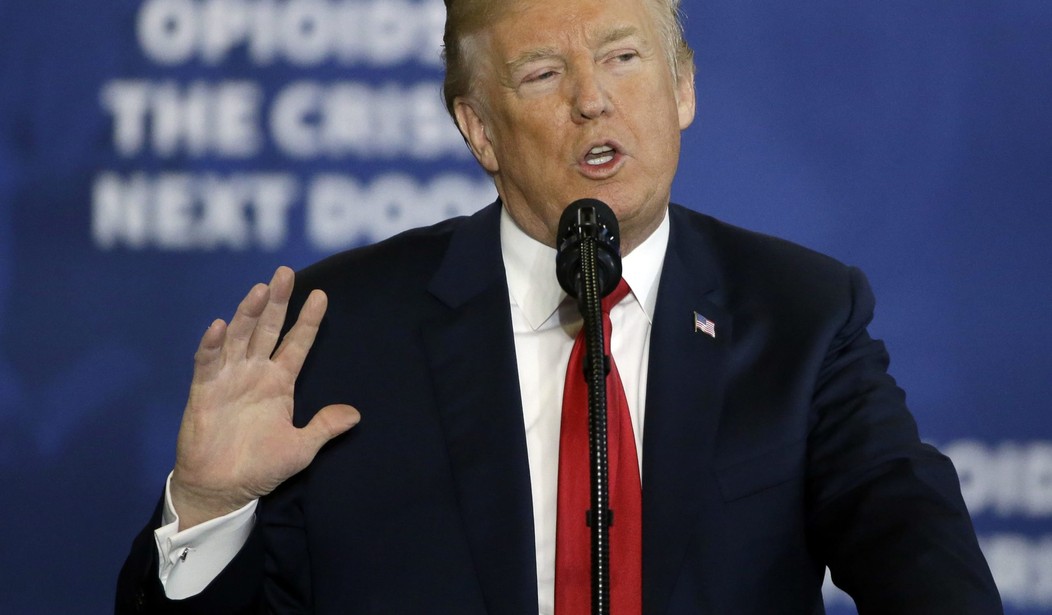Following the brief government shutdown in March that eventually led to a trillion-dollar spending bill, both Republicans and Democrats agreed they would go back to budgeting according to the law — a novel idea since it’s been a decade since Congress obeyed the procedures in the Budget Act.
Each federal department is supposed to get its own budget — 12 annual spending bills that are each introduced, voted out of committee, debated, amended, and then passed.
But in the last decade, Congress has ignored the law and simply passed continuing resolutions. This has led to massive overspending, as most departments are funded by adding a couple of zeroes to the previous total.
Now, it appears that only a handful of departments will actually be funded via the Budget Act. And the president is threatening to shut the government down unless they change that.
The worst-case scenario? A government shutdown just a month before Election Day, Nov. 6, as Republicans and Democrats fight for control of the House and possibly the Senate. Trump is agitating for more money for his long-promised border wall with Mexico. So far, he has been frustrated by limited success on that front.
“We need the wall. We’re going to have it all. And again, that wall has started. We got $1.6 billion. We come up again (in) September,” Trump said in a campaign-style event in Michigan last month. “If we don’t get border security, we’ll have no choice. We’ll close down the country because we need border security.”
At stake is the funding for daily operations of government agencies. A budget deal this year reversed spending cuts that affected military readiness and put a crimp on domestic agencies. A $1.3 trillion spending bill swept through Congress in March, though Trump entertained last-minute second thoughts about the measure and promised he would not sign a repeat.
The demise of the annual appropriations process took root after Republicans took over the House in 2011 and is part of a broader breakdown on Capitol Hill. The yearly bills need bipartisan support to advance, which has grated on tea party lawmakers. GOP leaders such as House Speaker Paul Ryan, R-Wis., and his predecessor as speaker, Ohio Republican John Boehner, have preferred to focus on other priorities.
Ryan did throw his weight behind a two-year budget agreement this year that set an overall spending limit of $1.3 trillion for both 2018 and 2019, citing a need to boost the Pentagon.
As we now know, that budget agreement boosted spending by a whopping $300 billion with only a fraction of that going to the Pentagon. Trump swore “Never Again” and now looks serious about shutting down the government if he doesn’t get what he wants.
Many conservative Republicans won’t vote for some bills because they think they spend too much money. That means Democratic votes are a must. But many Democrats are upset over unrelated policy add-ons pushed by the GOP, and they won’t vote for the spending bills unless those provisions are removed, which usually doesn’t happen until end-stage talks.
At the same time, House GOP leaders are distracted by disputes over immigration, and they haven’t made the appropriations bills a priority.
Those “add-ons” include defunding Planned Parenthood, much stricter immigration policies, and other conservative hot buttons that Republicans would dearly love to pass.
But Democrats have their own goodies they’d like to see added, including something related to gun control and DACA legislation. With both sides digging in their heels, the situation is ripe for an impasse to form.
But would Trump really shut down the government in an election year? I think the president has demonstrated that he is not averse to shutting down the government to get what he wants. That means that come September, both sides should be prepared to either give something in return for a budget deal, or face a shutdown a month before midterms.










Join the conversation as a VIP Member